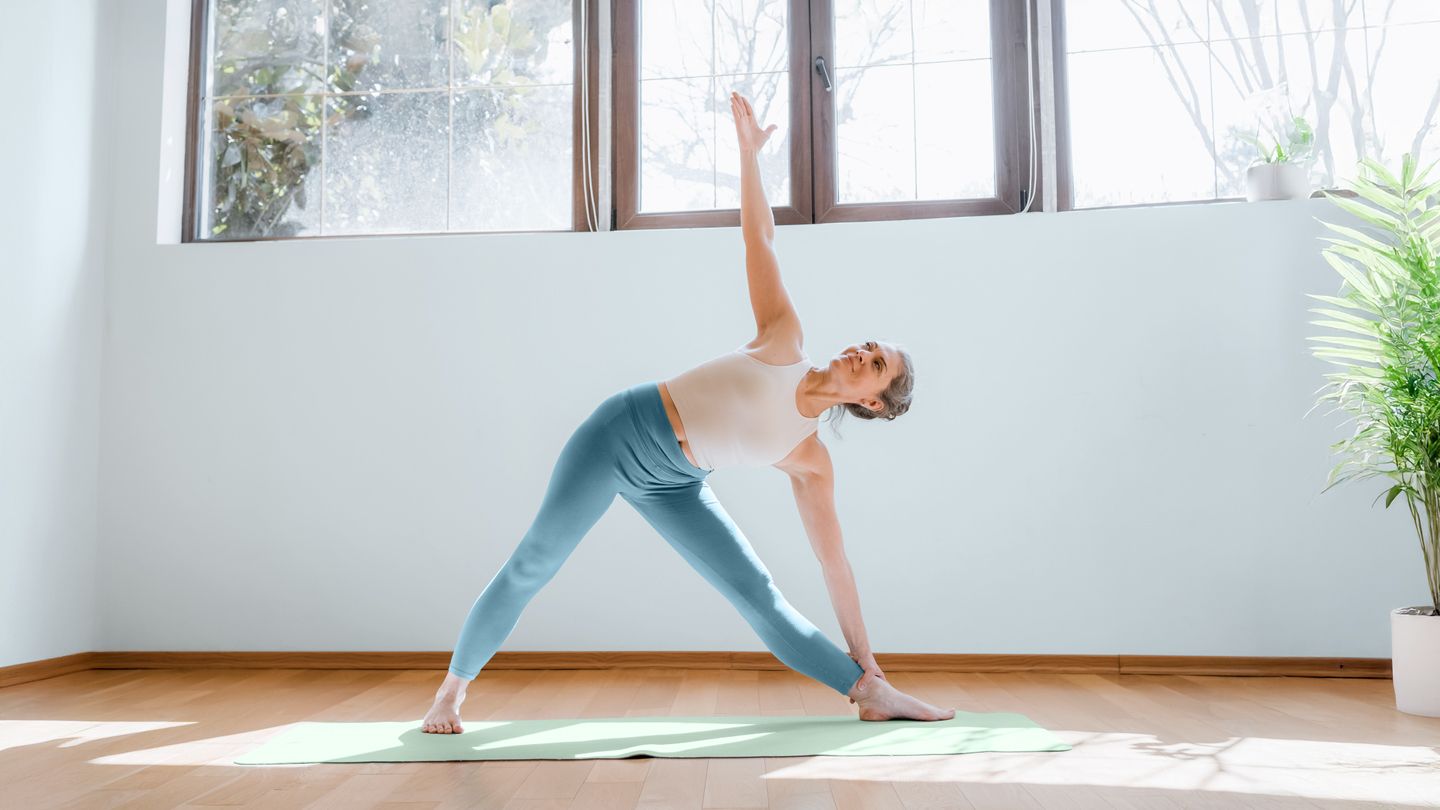“Exercise is an underused but highly effective natural sleep aid, with benefits for people of all ages and backgrounds,” says the lead author, Zhijun Bu, a scientist at the Center for Evidence-Based Chinese Medicine at Beijing University of Chinese Medicine.
“These specific exercises are gentle, easy to stick with, and especially suitable for people with insomnia,” Bu says. “They can be just as powerful as medication, but without the side effects.”
Studies Looked at 7 Types of Exercise
Researchers started by looking at 22 clinical trials on exercise for insomnia, which involved more than 1,300 total participants. The review included studies on seven forms of exercise:
- Yoga
- Tai chi
- Walking or jogging
- Aerobic exercises plus strength training
- Strength training alone
- Aerobic exercise combined with therapy
- Mixed aerobic exercises
Bu says that many specific types of exercise (such as swimming, cycling, tennis, and team sports) may fall under general “aerobic activity” in this study, but they weren’t individually analyzed because there were not enough high-quality trials focused on individual activities.
In some of the studies, participants filled out questionnaires and sleep diaries; in others, researchers measured sleep quality by giving participants wearable activity trackers. From these data sources, researchers calculated how different types of exercise affected:
- Total sleep time
- Percentage of time spent sleeping while in bed
- Number of times a person woke up from sleep
- Time it took to fall asleep
Yoga, Tai Chi, Walking, and Jogging Came Out on Top
According to the results, yoga had a large impact on total sleep time — adding nearly two hours of shut-eye for people with insomnia. It also cut the amount of time spent waking up after falling asleep by nearly an hour, and reduced the time it took to fall asleep by around half an hour.
Tai chi, which incorporates gentle movements, meditation, and controlled breathing, was linked with a notable reduction in poor sleep quality scores. The ancient Chinese martial art increased total sleep time by more than 50 minutes, reduced time spent awake after falling asleep by over half an hour, and cut time to fall asleep by around 25 minutes, according to the analysis.
Study authors highlighted that walking and jogging dramatically cut insomnia severity, as measured by participant answers to a standardized insomnia questionnaire.
Of all the exercise types, only strength training seemed to have no effect on sleep in this analysis — although the authors noted that this finding conflicted with previous research.
They also acknowledged that nearly 70 percent of the trials they reviewed had design flaws, with many not reporting key details like exercise intensity or duration. That means results should be interpreted conservatively; more high-quality, large-scale trials are needed to confirm the findings.
How to Find the Right Exercise for Sleeplessness
Bu suggests that certain forms of exercise may be more effective depending on the type of sleep issue a person is experiencing.
“For those who struggle with insufficient total sleep time or difficulty falling asleep, yoga and tai chi may be more suitable,” he says.
For those who often feel tired, have trouble focusing, or experience low mood during the day, Bu recommends aerobic exercises like walking or jogging.
Tai chi especially stood out from the other activities because it was connected with significant improvements across all sleep indicators, even for people who’d been practicing this technique for less than three months. The benefits of tai chi also remained stable in long-term follow-ups of one to two years, Bu says.
Based on the review’s analysis, Bu offers the following exercise regimens for better sleep:
- Walk or jog 3 to 5 times per week, 30 to 75 minutes per session.
- Practice yoga 2 to 6 times per week, 45 to 60 minutes per session.
- Practice tai chi 2 to 3 times per week, 45 to 60 minutes per session.
How Do These Activities Help Sleep?
Overall, the study provides further confirmation that physical activity contributes to better rest, says Shalini Paruthi, MD, a sleep medicine physician and an adjunct professor at Saint Louis University School of Medicine in Missouri.
“We know that moderate aerobic exercise increases the amount of slow-wave sleep [also called deep sleep] an individual gets,” says Dr. Paruthi, who was not involved in the review. “That sleep gives the brain and body a chance to rejuvenate.”
With their focus on breathing, mindfulness, and relaxation, yoga and tai chi may be especially good for alleviating anxiety and depressive symptoms, which often interfere with a good night’s sleep, the researchers wrote.
They added that walking or jogging may lead to better rest by burning excess energy, reducing stress hormones including cortisol, improving overall mood, and boosting production of the sleep hormone melatonin.
CBT Remains the First-Line Treatment for Insomnia
The new analysis acknowledged that the primary treatment for insomnia is cognitive behavioral therapy (CBT), which can help people change negative thoughts and behaviors related to sleep. Medications can also be effective for chronic insomnia, they wrote, although they can come with side effects.
“Cognitive behavioral therapy for insomnia is the gold-standard treatment for insomnia, and anyone who has significant anxiety about being unable to sleep at night should pursue it either with a trained provider or an app,” says Michelle Jonelis, MD, the chief medical officer of the Lifestyle Sleep Clinic in Mill Valley, California, and a member of the American College of Lifestyle Medicine.
For these individuals, supplementing CBT with exercise could boost its effects, Paruthi says.
“For people without significant anxiety who are experiencing sleep disruption, exercise on its own is a great place to start,” says Dr. Jonelis.
Jonelis, who was not involved in the research review, says people who aren’t sleeping well should think about what type of exercise they would enjoy doing and make a plan for how to incorporate it into their life.
Regular exercise doesn’t eliminate the risk of insomnia, though, she says.
How to Exercise for Better Sleep
Ann E. Rogers, RN, a sleep specialist with the Nell Hodgson Woodruff School of Nursing at Emory University in Atlanta, offers the following tips on adopting an exercise habit.
- You’re more likely to complete your workout if you have time set aside to do it (like early to midmorning) — before other daily demands get in the way.
- Don’t dive headfirst into an intense workout if you’re just getting back to the gym. Ease into physical activity gradually.
- Be patient with yourself. Any movement is going to be beneficial for sleep.
- Steer clear of intense workouts near bedtime. They can rev you up rather than wind you down.
Read the full article here




